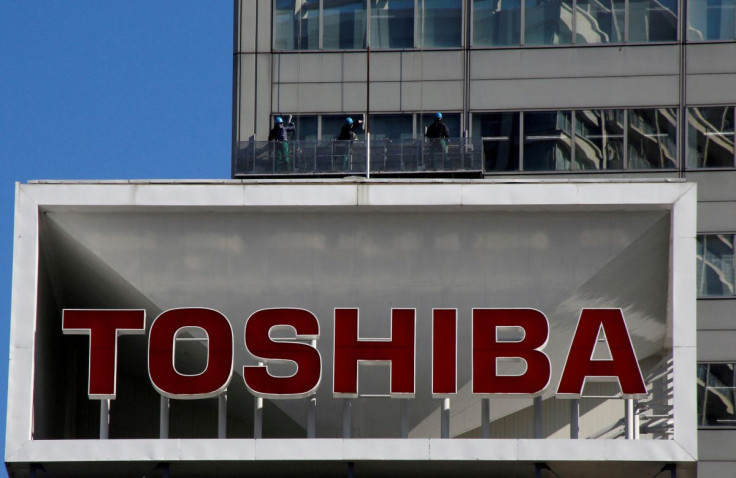Toshiba Board Gains Two Directors From Activist Funds In Historic Shift

Toshiba Corp shareholders voted in on Tuesday two board directors from activist hedge fund investors - a step expected to add momentum to the industrial group's exploration of potential buyout deals.
Toshiba's annual general meeting elected Nabeel Bhanji, a senior portfolio manager at Elliott Management, and Eijiro Imai, managing director at Farallon Capital Management as new board members. Shareholders also chose Akihiro Watanabe, an executive from boutique U.S. investment bank Houlihan Lokey, who becomes board chairman.
The appointment of Bhanji and Imai was not without controversy. External director Mariko Watahiki, who opposed their candidacy, tendered her resignation after the vote, concluding that, in order to move forward as a united board, it would be better she step down, Toshiba said in a statement.
Watahiki, a former high court judge, had argued the appointments of the two could skew the board too much towards the input of activist investors.
So far only a few large Japanese companies have brought activist shareholders onto their boards. Toshiba is particularly significant given its history of accounting and governance crises since 2015 and tensions with its large activist investor base.
"One of the major issues that we've had as a company is a lack of trust between our large shareholders and management, and this was an attempt to address that," Raymond Zage, who chairs Toshiba's nomination committee, told the meeting before the vote.
Farallon and Elliott together hold about 10% of Toshiba and all activist shareholders are estimated to own roughly a quarter of the company.
According to a provisional breakdown of the voting, Watahiki had the lowest support rate, of 65.87%, followed by 75.81% for Imai and 76.16% for Bhanji.
BUYOUT TALKS IN FOCUS
Tensions with activist investors culminated last year when a shareholder-commissioned investigation concluded Toshiba had colluded with Japan's trade ministry - which sees the company's nuclear and defence technology as a strategic asset - to block overseas investors from gaining influence at its 2020 shareholder meeting.
This year, shareholders rejected management-backed plans to split the company in two, prompting Toshiba to restart a strategic review.
"Since the shareholders voted down the board's strategy to split, the board has had no choice but to try to produce the outcome preferred by the large shareholders - privatisation," said Travis Lundy, an analyst at Quiddity Advisors who publishes on the Smartkarma platform.
"It may not be successful but they don't have the choice to do nothing."
Seven new board directors were appointed and six including Watahiki were reappointed on Tuesday.
Toshiba said this month it had received eight initial buyout proposals to go private as well as two proposals for capital alliances that would keep it listed.
It plans to shortlist bidders soon so they can start due diligence from July.
Jerry Black, who chairs the board's committee in charge of the strategic review, told the shareholder meeting that going private "could possibly help" with a radical and speedy transformation of Toshiba, while stressing that the committee has no predetermined points of view.
Sources have told Reuters at least one bidder is considering offering up to 7,000 yen per share to take the company private, valuing a potential deal at up to $22 billion.
KKR & Co Inc, Baring Private Equity Asia, Blackstone Inc, Bain Capital, Brookfield Asset Management, MBK Partners, Apollo Global Management and CVC Capital Partners have submitted initial bids, according to people familiar with the matter.
Some of them may form consortia for a bid, they added.
Japanese funds are also looking to see how they can participate. State-backed Japan Investment Corp has hired SMBC Nikko Securities as its financial adviser for a potential equity investment, two people familiar with the matter said.
The Financial Times reported on Tuesday that KKR was stepping back from bidding for the whole company. A representative for KKR declined to comment.
Toshiba shares turned positive on the news of the board appointments and finished 0.7% higher at 5,745 yen, bringing it up 21% for the year so far and valuing at $18 billion.
© Copyright Thomson Reuters 2024. All rights reserved.





















